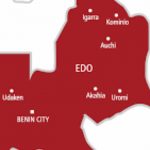A foremost Igbo socio-cultural group, Association of Southeast Town Union (ASETU), has described the End SARS protests by Nigerian youths and its attendant loss of lives as akin to the 30-month Nigeria/Biafran civil war.
The group, in a press release signed by its National President, Emeka Diwe and National Secretary, Gideon Adikwuru and made available to newsmen on Saturday, accused the Federal Government of fanning the embers of war for failing to address the youths properly and proffer lasting solutions to their problems.
It further described as satanic, barbaric, ignorant, divisive and unpatriotic, any plot to stop the rampaging youths who are genuinely agitating for good governance.
According to the release, “any attempt to mobilize the rest of Nigeria to levy carnage and genocide on the entire Igbo, is unacceptable. We are far too familiar with this script which some enemies of the country are about to act.
“The catastrophe that visited on our people in the aftermath of the January 1966 military coup which culminated in the 30-month genocidal civil war began exactly this way.
“A coup that was initially hailed as patriotic and revolutionary planned and executed by soldiers from the then four regions of the country was later tagged an ‘Igbo coup d’etat’, and over three million Igbos were ruthlessly butchered while it lasted.
“Government must act fast to bring those involved in the killing of unarmed protesters at Lekki and other parts of the country to book. Those behind the burning of Igbo businesses worth billions of Naira in Apo area of Abuja, Sabon Gari in Kano and other parts of the country must immediately be arrested and made to face the music.
“It must begin to address the immediate and remote causes of the unrest rather than playing to the gallery.
“We cannot pretend to be a federation where one ethnic nationality imposes itself on the rest of the country.
“We finally call the attention of the United Nations, United States, European Union and African Union to rise up against this negative stereotyping of the Igbo in the ongoing agitations by Nigerian youths for reforms.”





